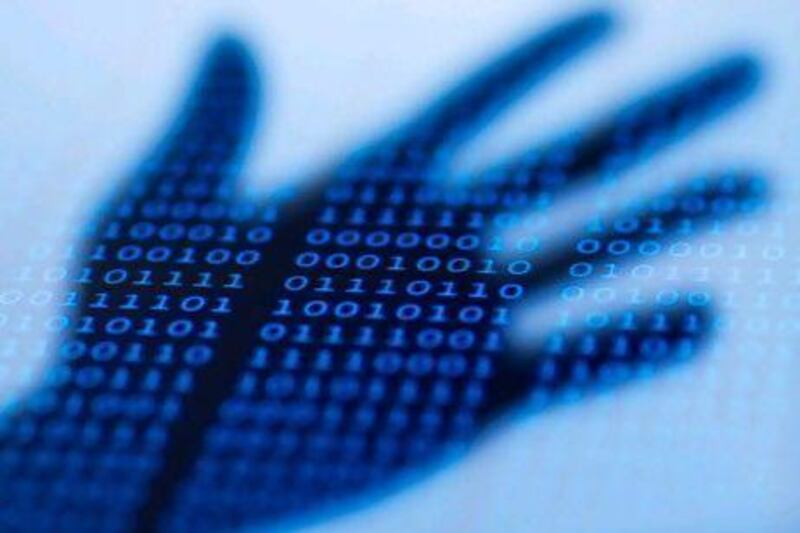Criminals are now using the internet to trade illegal goods and services of all kinds. Anything from computer hacking software to assassinations can be bought or arranged over the internet - for those who know where to look.
"In the old days, bad guys would hang out in a drinking den, and that's where you'd go if you wanted to find someone to bump off a rival," says Graham Cluley, an analyst at the computer security firm Sophos.
"Now, chances are that there are bad guys offering such services on the net - although it's unlikely that they're advertising the fact to all and sundry, and you have to be part of the criminal underground to have access to such dark markets," he says.
Professional criminals increasingly contact one another by logging into mysterious message boards using secret software.
According to Wired magazine, one routine search conducted by the Finnish security firm F-Secure unearthed a casual advertisement from a professional assassin offering his services for US$20,000 (Dh73,460) plus expenses per hit. It reads: "Former French Foreign Legion, no fish too big, no job too small."
Crucially, the would-be assassin also requests payment in an experimental new internet-based currency called Bitcoin, which uses the same sort of peer-to-peer software employed by digital video pirates to manage transactions and issue payments away from the watchful eye of any central fiscal authority.
International criminals initially used more standard online payment services such as PayPal, but found that their ill-gotten cash was too easily traceable. More sophisticated criminals also use the internet to launder the proceeds of crime in highly effective ways.
"Moving your signals through a couple of countries hostile to the home country of the target discourages anyone from trying to follow the stolen money through the global internet," says Alan Brill, the senior managing director of the cyber security and information assurance practice at Kroll, a security company.
Organised criminal gangs also sometimes use so-called mules, who are paid to allow the criminal gangs temporary use of their bank accounts as the criminal cash hops from country to country and continent to continent in the blink of an eye.
According to international security experts, the internet's global reach is enabling organised crime to treat the Web as a poorly policed new frontier.
Where online criminals were once involved in the sale of hacking software or illicit video and audio content, they are now using the internet as a marketplace for drugs, prostitution and murder.
"Organised criminals, including drug operations, have also understood that the internet can provide the anonymity they want in communicating to their far-flung associates," says Mr Brill. "I think it's fair to say that like every form of legitimate business, organised criminals have become a lot more knowledgeable about the potential for using and misusing computers, networks and telecommunications.
"These can provide a hard-to-trace channel that can be used for theft."
Mr Brill also warns that it may not be long before online criminals start to use location-based social networks such as Foursquare to identify homes that are empty while their owners are away and sell that information to local criminals to burgle them.
Stuart Poole-Robb, the head of the security firm KCS Group Europe, says: "It is a free market, and many of the geeks have a range of skills that were not available 20 years ago. Now, we are all targets, and it is open season."
Some industry watchers believe it is inevitable that organised crime will use the anonymity of the internet to evade arrest while employing the latest digital technology to commit increasingly complex crimes across international borders.
"I think we need to stop thinking of internet crime as anything different from non-internet crime," says Mr Cluley. "It's just crime, full stop, and often makes no difference that there is an internet component.
"You wouldn't refer to crime which involved telephones as phone crime, so maybe we should stop making the distinction with crimes involving an internet component too."
Historically, every breakthrough in communications has been marked by a broadening of criminal activity. But the presence of the internet in all areas of people's lives is already sounding warning bells in the security industry.
Some believe that the authorities are now fighting a losing battle as a result of having to play by the rules while organised crime uses the internet to flout the law.
Mr Poole-Robb says "the law in place is working against us. It is after all, illegal to hack. It is also illegal to hack a hacker, which effectively is tying the hands of those who wish to prevent cyber-criminal activity.
"In the meantime, while politicians try to sort it out, the hackers become even more sophisticated and proficient and are doing more damage to the economy than most countries suffer during a war."
twitter: Follow our breaking business news and retweet to your followers. Follow us





